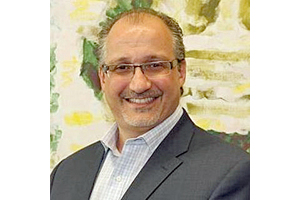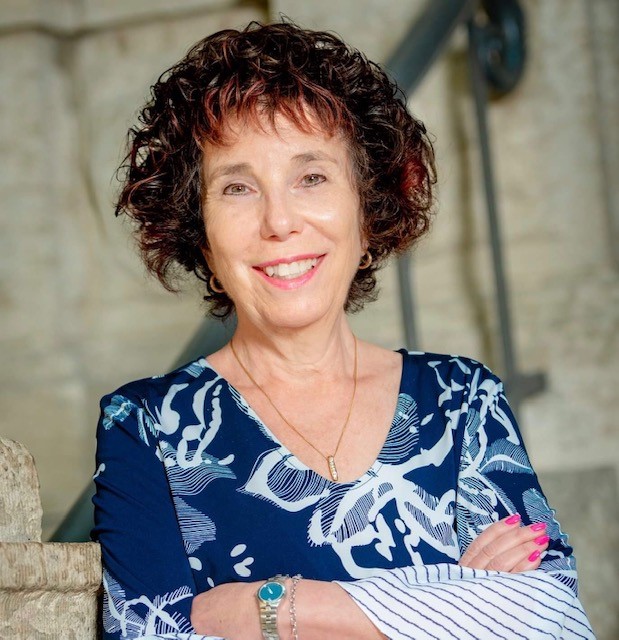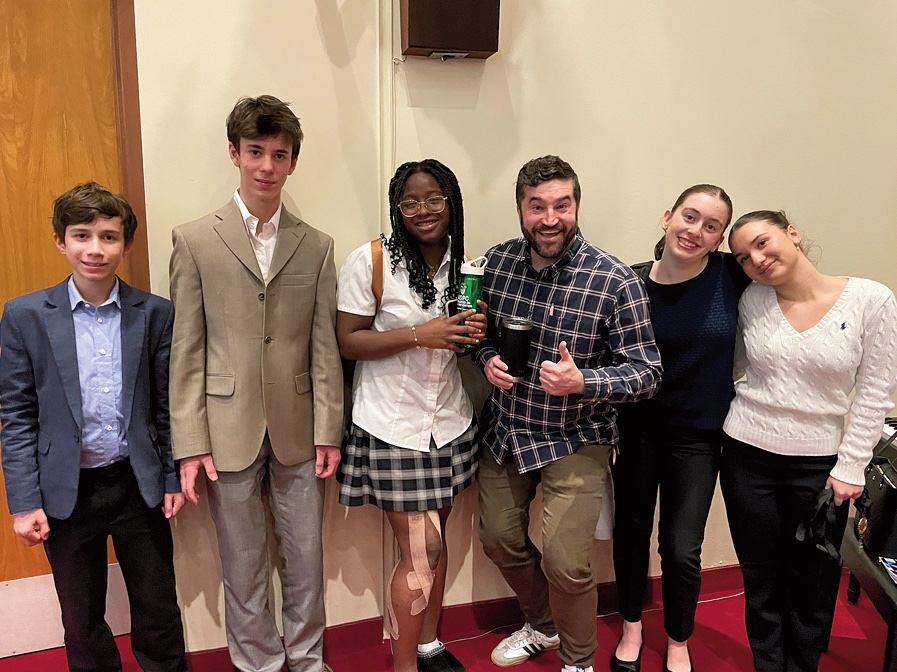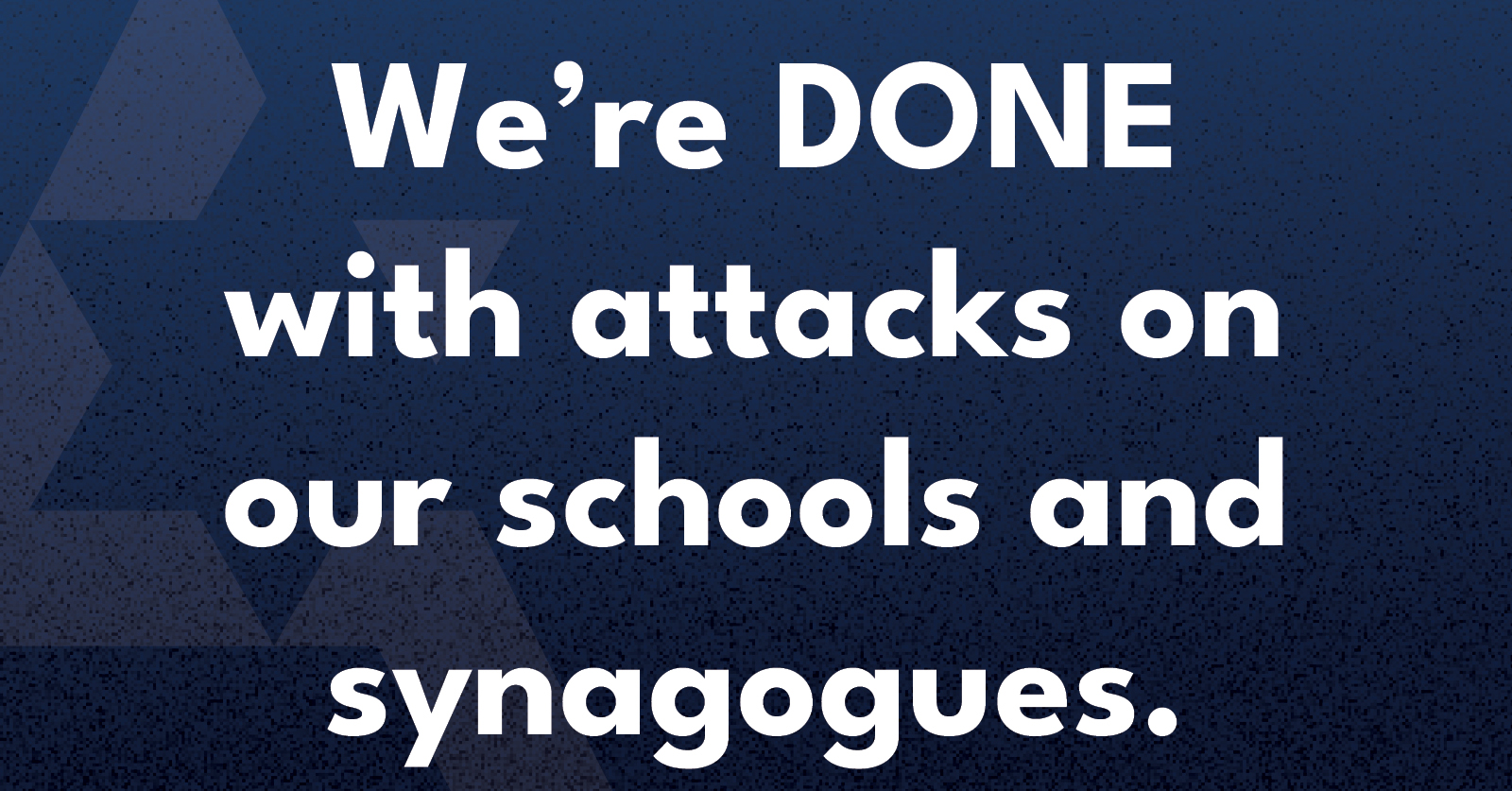Local News
JCFS report: Older adult, addictions cases continue to add heavily to JCFS workload

By BERNIE BELLAN Since the first lockdown as a result of Covid was imposed on Manitobans in March 2020 I’ve been reporting on how various organizations within our community have been adjusting to the new demands placed upon them both by clients and governmental authorities that monitor their activities.
Of the two organizations that have had to adjust the most – Gray Academy and Jewish Child and Family Service, while Gray Academy has certainly had to make wholesale changes in how it delivers services, it’s been JCFS that’s seen the most marked increase in demand for its services.
In July 2020 I reported that JCFS had received an allocation from the Jewish Federation for the 2021-22 fiscal year of $880,600, which represents an increase of $65,300 over the 2020-21 fiscal year.
In addition, JCFS had received a one-time increase in allocations of $185,000 as a result of an initiative taken by Jewish Federations of North America to provide increased funding to Jewish family service agencies.
Other information that I noted in my July report included mentioning that JCFS saw an increase of 66 older adult cases during the 2020-21 fiscal year (which ended March 31, 2021), along with a 40% increase in cases where addictions played a role.
With that information in mind, I spoke recently with JCFS Executive Director Al Benarroch, to talk about how JCFS has been coping with its increased workload and to ask whether he’s seen anything particularly new developing in terms of who is most in need of help from JCFS within our community.
Al began by noting that “We’ve been one of the more consistent agencies in the city. We’ve been well funded so that we could continue to provide a seamless service to clients.”
I asked Al whether there are any plans to have JCFS workers see more clients in person now that the provincial government has eased the restrictions on face to face contact among individuals who are double vaccinated?
“Now that the government” is modifying its rules for person to person contact, Al said, “we’re looking at a reopening plan. Over 90% of our work since April 2020 has been done remotely.”
The exceptions to that pattern have been child and family service care cases and some senior and Holocaust survivor cases – where it has been necessary to have some in person contact, Al explained.
I asked Al whether JCFS staff have been surveyed to see who’s been vaccinated?
He said that has not been the case (at the time of this interview), but that it will be a government requirement – for both staff and clients, if they are going to be coming into JCFS offices at some point.
As far as staff go, Al did note that the consensus among staff is that, while there “are aspects of their job they want to do from home, there are other things they prefer or need to do in the office.”
As a result, JCFS is looking at having staff come into the office on a rotating basis in the near future.
With reference to the allocations that JCFS received from the Jewish Federation for the fiscal year that ended, along with the special allocation from Jewish Federations of North America, Al noted that the funds received from both sources “made us the top receiving agency” of all the Federation’s 12 beneficiary agencies. (In my July 2021 report I noted that total revenues for JCFS in 2020-21 were $3,490,076, which included revenues received from sources other than the Jewish Federation.)
Also in my July report I noted that JCFS had taken on 66 new older adult cases during the 2020-21 fiscal year. Since the end of March, 2021 JCFS has taken on another 24 older adult cases.
As a result, JCFS has hired a new social worker on a one-year term who is working with older adults. That brings the total complement of social workers working on older adult cases to six, Al said, not including the Manager of Older Adult Services, Cheryl Hirsch-Katz, who supervises that program.
Many of the individuals who are now clients of JCFS are what Al described as “younger” seniors. “What we found is that the general age of these individuals was younger as a result of isolation,” Al explained, with many of the individuals having shown “a real decline” within the past year and a half.
Since the hiring of Danielle Tabacznik as JCFS “Senior Cconcierge” in April 2020 (a 2-year pilot program of the Jewish Federation), Danielle has been in contact with “over 230 seniors who are not connected to any programs in the Jewish community,” Al explained, many of whom have been suffering greatly from being isolated. As a result, half of JCFS’s new older adult clients have been referred through Danielle.
As far as other aspects of JCFS services go, Al made the following observations:
“Our caseload for children in foster care has declined.” This is in keeping with the “new approach” taken with family service agencies, which are “trying to engage families collaboratively”.
“The general trend within the province”, he added, is that while “the number of children in foster care is down”, “the number of families we’re working with is up…The system is much more proactive in reunifying children with their families…When we do have kids come into care, it’s a result of more dire indicators.”
In addition, a number of families from outside the Jewish community are referred to JCFS where there’s a “conflict of interest situation” where, for instance, one of the parents might be employed by another family services agency so that agency would not be able to become involved.
The headline for this article also refers to an increase in addictions cases for JCFS. Since the end of March 2021, six new addictions cases have been added to JCFS’s caseload, Al noted.
“Addiction is a disease of isolation and disconnection. The inability to non-communicate with others creates unbearable pressures for addicts,” he said.
The JCFS addictions program, however, which is now 10 years old, will be losing its coordinator, Ivy Kopstein, who has been coordinating the program since its inception, when she retires in October.
“She’s done so much to develop our program and raise awareness in our community” (of addictions), Al added.
In the area of mental health, Al said that “We pride ourselves that our mental health program has increased” – with the addition of eight new cases since the beginning of April. It means that people are reaching out for help.
One particular area of focus has been “in getting seniors to medical appointments and vaccinations.” Many seniors and clients with mental health concerns have been averse to taking public transit, but can’t really afford to take taxis. With a special grant from the Jewish Foundation, JCFS has been able to ensure that those senior clients are able to be transported safely to their medical appointments.
“There’s less stigma attached to mental health issues” now, Al observed, since Covid has raised awareness of just how much mental health has been adversely affected for so many individuals.
Finally, I asked Al whether there’s anything new to report about a new addictions facility – which has been talked about for years.
He responded that JCFS is awaiting the results of a consultant’s feasibility report on the business aspects of creating a sober-living facility “for Jewish people coming out of (drug) rehab” so that they can learn more recovery skills, and don’t have to re-enter society immediately.
“What we’ve found to be effective is that when people coming out of rehab can practice real world skills for an extended time, their chances for success are much better,” Al observed.
What is envisioned is “a Jewish milieu – not unlike a kid entering Gray Academywhere clinical services will be supplemented by Jewish cultural and spiritual supports,” he said, in closing.
Local News
Cheryl Hirsch Katz, Jewish Child and Family Service’s longest serving staffer, set to retire at end of the month

By MYRON LOVE “I loved working at Jewish Child and Family Service,” says Cheryl Hirsh Katz, who is due to retire at the end of June. “I have always appreciated the warm and welcoming atmosphere here. I feel that the people working here are my extended family. I am going to miss my colleagues”.
“I have derived great satisfaction over the years to have been able to help many people in our community of all ages through my work at JCFS,” she continues.
After 44 years at the agency, Katz, the longest-serving member of the staff, was given an appreciative send-off at the JCFS’s recent (June 23) Annual General Meeting at the Shaarey Zedek Synagogue.
The daughter of Art and Bess Hirsh, Cheryl grew up in Garden City. She attended Peretz School, then Jefferson Junior High and Garden City Collegiate. She joined the staff of JCFS in 1981, shortly after receiving her Bachelor of Social Work degree.
She earned an MSW in 1990.
“I chose to become a social worker,” she recalls, “because I always wanted to be able to help people.”
Katz was originally hired by JCFS to work with newcomers. After a couple of years, she was given responsibility for looking after the needs of older adults.
“I really enjoyed working in older adult services,” she says. “That is where I spent the bulk of my time at JCFS.”
After ten years as a case worker, she was promoted to a supervisory role. Later, she was also given responsibility for mental health and addictions programming and settlement services, while keeping the older adult files under her purview.
“As a supervisor, I wasn’t directly involved with individual clients,” she points out. “I was more involved with programming. Among the programs for seniors we organized were – for example – sessions on elder abuse, digital storytelling and memory loss.”
She notes that one of the trends she has seen over the last 44 years is that people are living longer and living in their homes longer. A lot more of our clients are living well into their 90s,” she observes. “We have had to continually expand our staff and the services we provide in order to accommodate the growing demands of an aging population.”
She also spoke of the mental health needs of seniors and aging Holocaust survivors.
She says that she has mixed feelings about leaving JCFS. “After so many years working full time, I am going to have to create a new routine,” she comments.
She notes that, now that she is retired, she will have more time to spend with her parents – who are in their 90s.
And then, there are the two dogs to look after. “I will have time now to try new activities,” she says. “ I might learn to play mah-jong.”
She speaks about maybe doing some traveling – although her husband, Murray, is still working full time.
(She and Murray have one daughter, Farah.)
“Retirement may also include some volunteering,” she adds.
It is quite likely, she will be continuing her association with JCFS but in a volunteer capacity.
Local News
Gray Academy students shine in provincial, national debating competitions

By MYRON LOVE It has been another good year for Gray Academy’s high school students who participated in provincial and national debating competitions. The best results were recorded by Grade 9 student Noa Mednikov, who finished fourth overall nationally, fourth in interpretive reading, and fifth in persuasive speaking at the junior National Public Speaking Championship in early May in Vancouver.
Last October, in the Junior Provincial British Parliamentary Championship – which was held at St. John’s-Ravenscourt – Noa and her partner, Raya Braunstein, finished third as a team while Raya placed third in individual debating.
Their fellow Grade 9 student Maxim Moscalenkov tied for first in persuasive speaking in Vancouver, while the Gray Academy team of Gabe Tapper and Aaron Koplovich finished fifth. Aaron also finished fifth in his individual debate.
Earlier, in March, Maxim finished fifth in the Provincial Juniors debating competition, which was held at Balmoral Hall He and his debate partner, Nate Shenkarow, finished seventh among the teams entered. Last November, he and partner, Ethan Tenenbein, finished seventh in the Junior Prepared Tournament – just behind the Gray Academy team of Nate Shenkarow and Jack Kay.
At the senior high level in that competition, the team of Jacob Tenenbein and Jonah Novoseller finished fourth and Jacob was recognized as fifth best in an individual capacity. Jonah and Jacob also paired up to win the Asper Cup, which was held at their home school.
Jacob represented Manitoba at the Junior National Speech Championship in Vancouver in May and, last October, he and Grade 12 Gray Academy students Julie Krozkin and Daniel Bokser represented Canada at an international debating tournament in Bermuda.
Gray Academy’s debating program was introduced by Linda Martin in 2003. She also led the debating teams at Balmoral Hall. In 2011, Martin was succeeded by Gray Academy high school English teacher Andrew Kaplan.
“Andrew has done a wonderful job with the debating program” says Martin, who has a debating trophy at Gray Academy named in her honour, as well as a provincial trophy for best individual junior debater. “Over the years, Gray Academy students have done very well in many local, national and international competitions,” she adds.
About three weeks ago, this writer had the opportunity to sit down with Andrew Kaplan and six of the school’s top debaters while they discussed the benefits of learning how to debate. According to Noah Strauss – who competed in the Junior Provincials at Balmoral Hall in March, public speaking leaves him with a feeling of accomplishment.
“It’s a good skill set to have,” he observes. “It builds confidence.”
“A benefit of being able to debate is that you learn how to convince people that you know what you are talking about,” adds Maxim Moscolenkov.
Raya Braunstein notes that being able to debate is a skill that she expects to be helpful in many university courses which she may choose to take.
As Andrew Kaplan notes, the ability to express yourself has a great impact in whatever career you choose to pursue.
He points out that debating is compulsory at Gray Academy for all Grade 7 and 8 students – and students can continue debating as an option in the higher grades
Of course, competitive debating is not for everyone. For those students who opt to take that path, the journey begins with internal school debate competition – with the top debating teams and individuals qualifying for local tournaments and – potentially – beyond.
Andrew Kaplan reports that a small number of high schools in Winnipeg and southern Manitoba have active debating programs – including St. Johns Ravenscourt, St. Paul’s High School, St. Mary’s Academy, Garden City and Maples Collegiates in the Seven Oaks School Division, St. Maurice (a Catholic School), as well as Morden Collegiate and Dasmesh, a Sikh private school.
Kaplan expresses his appreciation to the Asper Foundation and an endowment spearheaded by the Kives Family for providing funding for the Gray Academy debating program – as well as the Andrew Slough Foundation – which was established by his friends in memory of the outstanding former Ravenscourt student debater and lawyer who passed away suddenly two years ago at the still young age of 38.
I am confident that our Jewish community can look forward to the continued success of Gray Academy’s star debaters and to the continual emergence of future stars as the times goes by.
Local News
Antisemitism has crept into grade school in Canada

Antisemitism in Canada has moved beyond protests and politics; it is now entering classrooms and altering how Jewish children see themselves functioning within them.
A a university student I have observed the experience of my younger brother in grade eight as a Jewish student. Over the past few months, his school has been at the center of several deeply troubling incidents that have made him feel unsafe in our parks, community, and even his school. Swastikas were drawn around the community, in parks and ponds. Additionally, an older man, who claims to be a pro-Palestinian influencer, stood outside his predominantly Jewish school wearing a keffiyeh, filming a video which then circulated between students on TikTok.
This same man later showed up to our local Jewish community center in keffiyeh to allegedly watch his son play basketball where my brother and many of his classmates go for their lessons, basketball games, and Jewish events. These moments made him and his peers feel watched and targeted just for being Jewish. Local political representatives condemned the incidents and raised awareness about antisemitism, but the fear among students didn’t go away. The feeling of being targeted for simply existing has been taught to my brother, something my parents had tried their hardest to escape from.
Most recently, my brother was chosen to represent his school at a regional science fair. When one of the judges arrived wearing a keffiyeh, he froze. For many, including my brother after the incidents he has faced, the keffiyeh represents a political message. But even more so for my younger brother, it is tied to the fear and intimidation he had already experienced. He felt nervous, distracted, and unsure of how to act.
This is not about silencing political expression. It is about a child who came to share his ideas and left feeling uncertain and afraid. It is about the atmosphere forming in Canadian schools, where Jewish students are being made to feel targeted and unwelcome.
His school made an effort to address the incidents, but the impact is lasting. Posts on social media, much can be very vague at times about inclusion cannot fully undo the feeling of being singled out. A kind word from a teacher does not erase the fear that builds when threats are left unspoken but deeply felt.
I am writing this as a sister who watched her younger brother lose a moment that should have been filled with confidence and pride. He deserved to feel safe. So do all Jewish students in this country.
Moving forward, schools must take concrete steps to protect all students. Antisemitism cannot only be addressed when it becomes violent or overt. It must also be recognized when it appears as intimidation, symbolic targeting, or political messaging that creates fear among students. Children should never have to question whether they are safe in their own classrooms or community spaces.
Events that are meant to support and celebrate students must remain focused on them. Individuals who feel the need to bring political symbols or messages into school grounds or children’s events should not be welcomed in those spaces. Schools must make it clear that their environments exist to support learning, safety, and inclusion, not to host agendas that can intimidate or isolate students.
Administrators and educators must develop clear guidelines for identifying and responding to antisemitic behavior in all its forms. This includes strengthening security measures, offering ongoing staff training, and engaging directly with Jewish families to understand their concerns. Inclusion is not a one-time statement. It is a responsibility that must be reflected in everyday decisions and actions. No child should ever feel unsafe or unwelcome because of their identity.
The author is a Campus Media Fellow with HonestReporting Canada and Allied Voices for Israel who lives in Toronto.
